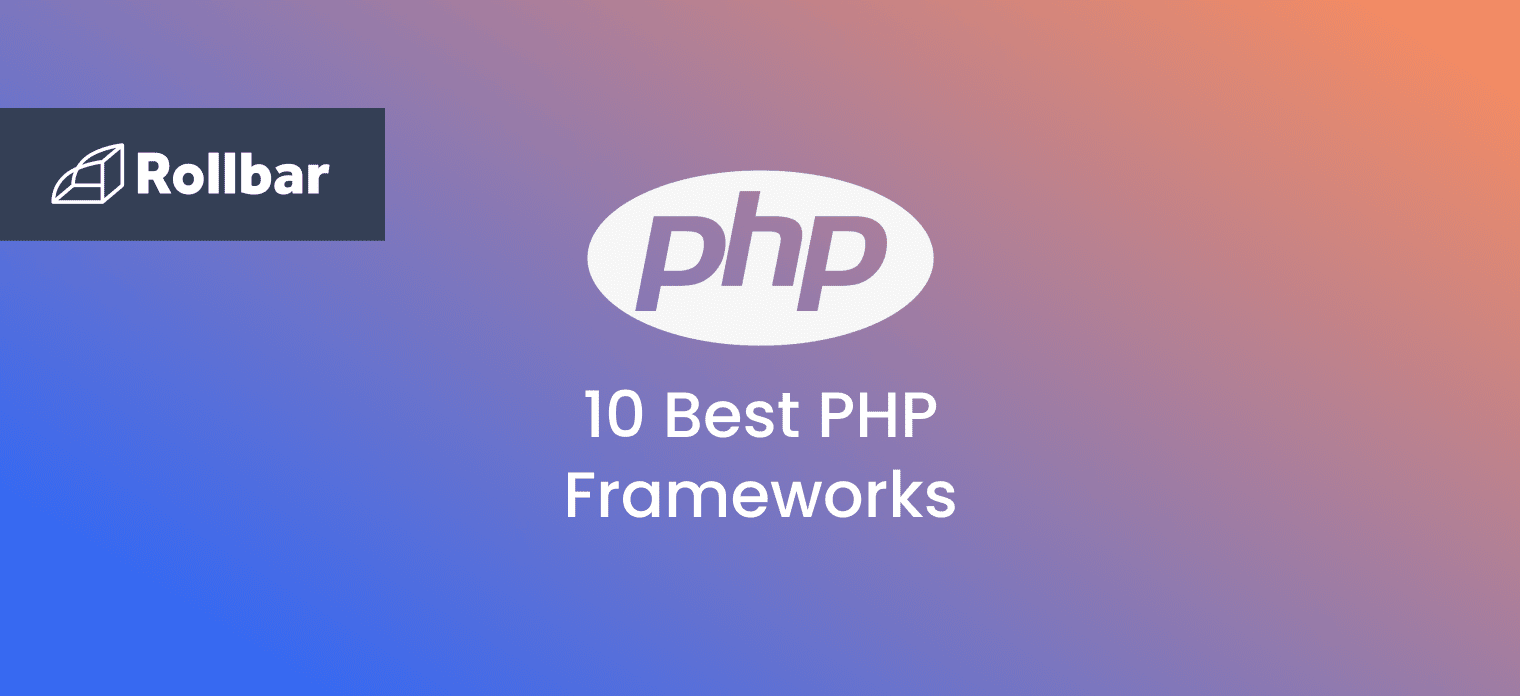What is a PHP framework?
A PHP framework is a platform to build PHP web applications. PHP frameworks provide libraries for commonly used functions, which helps to cut down on the amount of original code developers need to write from scratch.
A PHP framework provides a basic foundation for the development of web applications in PHP. Frameworks are useful because they speed up and standardize the development process, reducing doubts about how to start building an application.
Why use a PHP framework?
There are several reasons for using PHP frameworks compared to coding from scratch:
- Faster development - The time required for development is much less because of built-in libraries and tools.
- Better performance - Since frameworks are thoroughly tested for quality and performance, using PHP frameworks helps businesses meet their performance needs.
- Less code - The need to write original code is reduced when using functions built-in to frameworks.
- Libraries for common operations - Many tasks that developers need to perform when building applications can be repetitive e.g. validation, data cleaning and CRUD operations. Frameworks allow performing such common tasks using built-in functions.
- Following best practices - PHP frameworks usually follow best-practices e.g. they organize code in a clean and maintainable way and follow good naming conventions.
- More secure - Using PHP frameworks minimizes chances of exploits such as cross-site scripting and SQL injection. Good PHP frameworks have built-in defenses against such common threats.
- Enable teamwork - Using frameworks sets clear rules for projects, enabling developers to pick them up quickly and work collaboratively.
- Better maintainability - PHP frameworks help create a leaner and more maintainable codebase. Also, the maintenance of the core framework itself is taken care of by the developers of the framework.
Best PHP frameworks
Some of the best PHP frameworks are listed below, based on popularity and ability to facilitate rapid application development:
Laravel
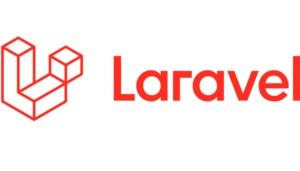
Launched in 2011, Laravel has become the most popular free, open-source PHP framework. It can handle complex applications securely, at a much faster pace compared to other frameworks.
Why use Laravel?
- It is easy to get started with Laravel Homestead, a pre-packaged Vagrant box that provides a virtual development environment that removes the need to install PHP, web server or any other server software.
- Laravel is full of features that help configure and customize complex applications - authentication, authorization, encryption, hashing, password reset, data migration, routing, MVC architecture support among many others.
- The Laravel Artisan Console command line tool speeds up development by automating repetitive tasks and generating boilerplate code.
- Laravel is highly expressive with excellent speed and security features. It is also highly flexible and evolves with the latest web development trends.
Disadvantages of Laravel
This framework requires creating a separate admin panel to manage and edit content. If several stakeholders need access to the settings of the web application, a CMS may be a better option.
Symfony
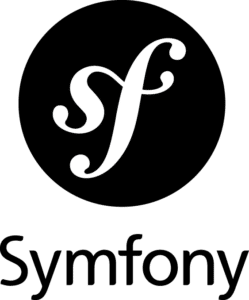
Symfony is an excellent choice for web applications that need to be scalable. It is packed with many features, its modular component system is very flexible and allows developers to pick and choose the components for their project.
Why use Symfony?
- Symfony is easy to install and configure on most platforms, making it the perfect choice for developing enterprise level applications.
- Some of its key features include reusable PHP components, database engine independence, stability, following most web best practices and design patterns.
- Symfony is highly flexible and allows for integration with other vendor libraries.
Disadvantages of Symfony
- While Laravel focuses more on simplicity and is easy-to-use even for beginner or intermediate developers, Symfony targets advanced developers and is a bit harder to start with.
- The Symfony security mechanism is a bit difficult to use.
- It can also be a little slower than other frameworks because of its feature-rich nature.
CodeIgniter
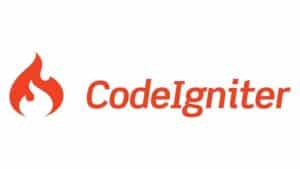
Known for its speed and footprint (about 2 MB in size including documentation), CodeIgniter is suitable for developing dynamic websites. It offers numerous modules that help construct robust and reusable components.
Why use CodeIgniter?
- Flexibility - CodeIgniter encourages development using the MVC architecture, but developers can code using other architecture paradigms as well.
- Lightweight - CodeIgniter is a lightweight PHP framework that is easy to install and set up compared to other frameworks.
- Security - CodeIgniter includes defenses against CSRF and XSS attacks as well as context-sensitive escaping and a Content Security Policy.
- Performance - CodeIgniter supports multiple caching methods that help speed up web applications.
- Easy to learn - CodeIgniter has an easy learning curve compared to other frameworks and is very extensible. Due to its highly detailed documentation, it is ideal for beginners.
Disadvantages of CodeIgniter
CodeIgniter releases are somewhat irregular, so it may not be the best option for an application that needs regular updates to maintain security.
CakePHP

CakePHP is an open-source PHP framework that follows the MVC architecture and helps build web applications quickly. It is quite simple to use, has minimal configuration and helps build visually impressive and feature-rich web applications.
Why use CakePHP?
- Easy to install - Only a web server and a copy of the framework is needed to get started.
- Inbuilt ORM - CakePHP has its own ORM, which is quite simple to use.
- Security - Security features include methods for encryption, password hashing, SQL injection prevention, input validation, CSRF and XSS protection, making it a good choice for building enterprise level applications.
- Some other key features include a modern framework, validation, great documentation and premium support.
Disadvantages of CakePHP
CakePHP can be a bit restrictive due to its strict following of conventions so this may not be the best option for developers who like to bend the rules or need to ship fast.
Yii

Yii is a simple to use, high-performance and component-based PHP framework for developing modern web applications. Yii is suitable for all kinds of web applications making it a universal web development framework.
Why use Yii?
- Yii is easy to install and set-up. The documentation is also well written and easy to follow.
- Its robust security features such as bcrypt password hashing, encryption, authentication and authorization make it suitable for building highly secure projects such as e-commerce, CMS, forums etc.
- Yii’s excellent performance, elegant caching support and code generator tools make it an excellent choice for developers to create highly optimized web apps.
- Its core developer team, experts and massive community of users help make it easy to get support when needed.
- Yii is very extensible, making it easier for developers to customize every part of the core code.
Disadvantages of Yii
Yii has a steep learning curve, making it somewhat harder for beginners to get started. It also requires greater attention during development as one mistake in code can cause issues in the entire application.
Zend

Zend is a complete object-oriented framework, using features like inheritance and interfaces that make it highly extensible. It is open-source, easy to use and an excellent choice for building feature-rich enterprise-level web applications. Zend is highly customizable and follows PHP best-practices.
Zend is now transitioning to the Laminas Project. Migration to Laminas is highly recommended since Zend is no longer updated.
Why use Zend?
- Zend contains very structured and reusable code, making it a great choice to build complex enterprise-level applications.
- Some of its key features include MVC components, cloud API, encryption and session management.
- It can integrate with third-party libraries and templates. Developers can use only the components they need.
- Zend offers excellent performance, security and extensibility.
- Zend has extremely detailed documentation and a large community of developers and users.
Disadvantages of Zend
There can be a steep learning curve for mobile app developers using Zend. Zend plugins can also come at high cost, making it more expensive and not suitable for projects on a tight budget.
Phalcon
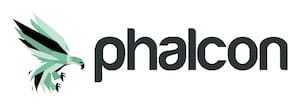
Phalcon is a high-performance full-stack PHP framework that uses MVC architecture. It is delivered as a web server extension written in C (no knowledge of C is required to use it).
Why use Phalcon?
- Phalcon is easy to install and a good choice for creating highly configurable web applications in line with enterprise development best-practices.
- Key features include high execution speed, asset management, good security and caching.
- Phalcon optimizes performance due to its efficient memory usage. It also does not use file reads and statistics, further improving performance.
- Phalcon is loosely coupled, allowing developers to create their own directory structure.
- Phalcon's templating engine (Volt) is extremely fast and comes with helper classes to create views easily.
Disadvantages of Phalcon
Phalcon rolls out updates and patches to fix bugs somewhat infrequently, which may not work for applications that need high levels of security.
FuelPHP

FuelPHP is a community-driven full-stack PHP framework that is very flexible. It supports the MVC design pattern and also has its own version - hierarchical model view controller (HMVC), which adds another layer between the Controller and the View. With HMVC, duplication is content is not required to show on multiple pages, saving time and memory.
Why use FuelPHP?
- Key features of FuelPHP include HMVC implementation, RESTful services, a URL routing system, good security and a caching system.
- Some of its security features include output encoding, CSRF protection and URI and XSS filtering.
- FuelPHP has good organization of code, greater modularity and extensibility compared to other frameworks.
- FuelPHP has its own command-line utility (oil) which can be used to run tasks, debug code and generate components.
Disadvantages of FuelPHP
Since FuelPHP is relatively new, it offers less support and may have a steeper learning curve compared to other frameworks.
Slim
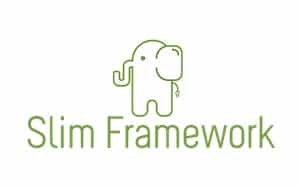
Slim is a popular micro PHP framework that helps developers quickly create simple yet powerful web applications. It focuses on receiving an HTTP request, invoking a callback and returning an HTTP response.
Why use Slim?
- Slim is easy to learn and understand. It's codebase is lean as it has no third-party dependencies, making it very fast.
- Key features include URL routing, session and cookie encryption, client-side HTTP caching among many others.
- Slim is an excellent choice for building small web applications that don't necessarily require a full-stack PHP framework. For more advanced needs, Slim integrates with first-party and third-party components.
Disadvantages of Slim
Slim isn't the best choice for building complex, large-scale web applications. Its dependency injection is also quite weak, making it somewhat unsuitable for enterprise level applications.
PHPixie
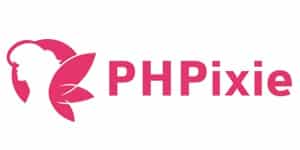
PHPixie is a highly optimized full-stack framework for developing high-performance web applications. PHPixie implements the HMVC design pattern like FuelPHP, and is built with independent components.
Why use PHPixie?
- PHPixie is easy to get started with, and is suitable for building customized web applications, web application services and social networking websites.
- Key features include HMVC architecture, Object-Relational Mapping (ORM), input validation, authorization, authentication and caching.
- PHPixie is built using independent components which can be used as such within the framework. PHPixie applications have minimal dependencies.
- PHPixie offers high performance and low coupling among other things.
- Disadvantages of PHPixie
Since PHPixie is relatively new, it is less popular and has a smaller community of users.
What is the Best PHP Framework for Beginners?
Generally, simpler and leaner frameworks that are easy to understand are ideal for beginners. Once these are mastered, developers can advance to more feature-packed frameworks if needed.
CodeIgniter is the top choice for a beginner-friendly PHP framework that is easy to use and quick to learn. It works on the MVC architecture, is easy to install, offers several guides and is easy to understand for beginners to get started with developing web applications on PHP.
Track, Analyze and Manage Errors With Rollbar
Managing errors and exceptions in your code is challenging. It can make deploying production code an unnerving experience. Being able to track, analyze, and manage errors in real-time can help you to proceed with more confidence. Rollbar automates error monitoring and triaging, making fixing PHP errors easier than ever.



